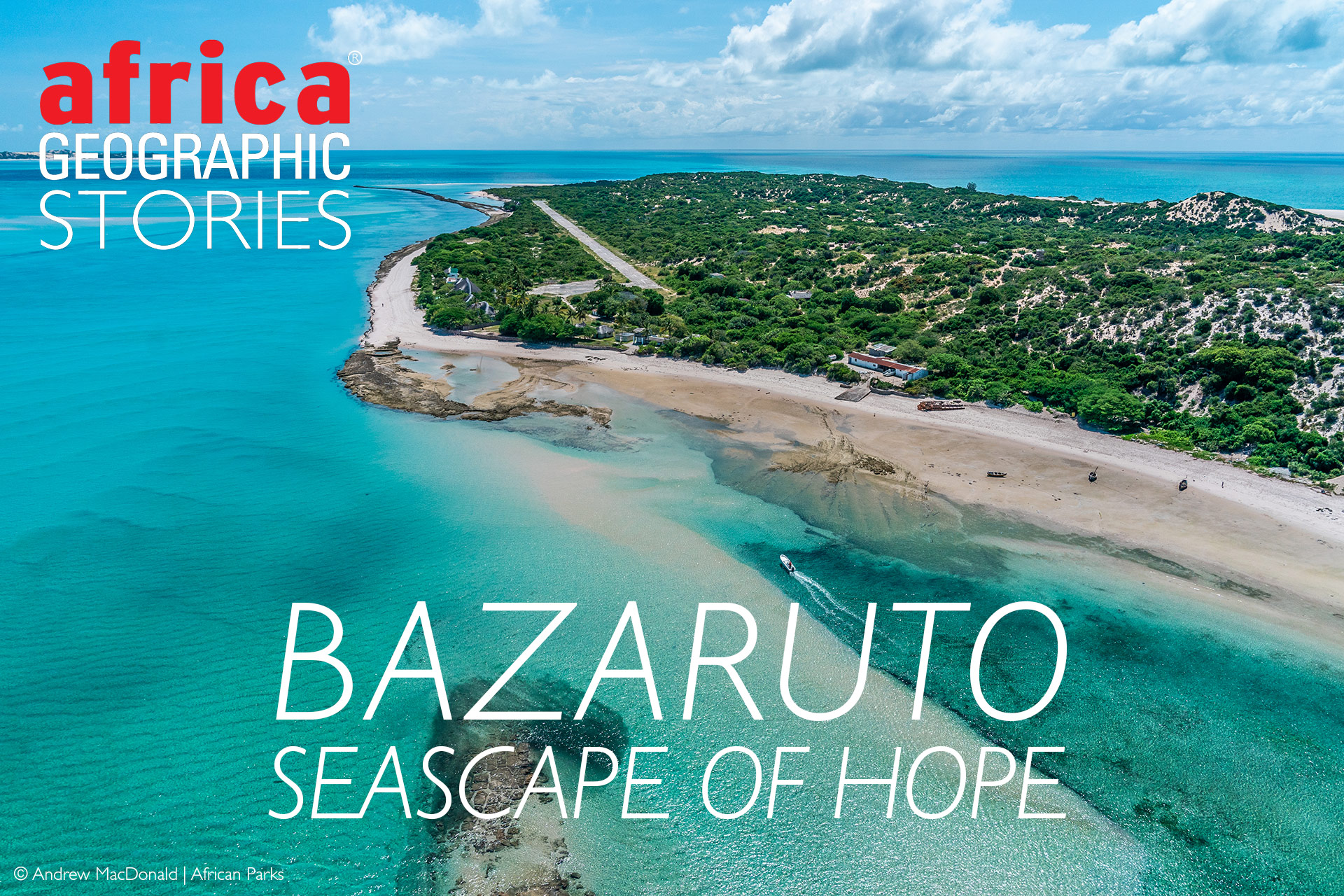
KINGSLEY HOLGATE'S AFRIKA ODYSSEY EXPEDITION


Our mission in Mozambique is to reach the Bazaruto Archipelago National Park, number 10 of this Afrika Odyssey quest to connect all 22 African Parks-managed protected areas in 12 countries. Not far from the town of Vilanculos, a new, marine-themed wildlife adventure awaits.
Renowned African explorer Kingsley Holgate and his expedition team from the Kingsley Holgate Foundation recently set off on the Afrika Odyssey expedition – an 18-month journey through 12 African countries to connect 22 national parks managed by African Parks. The expedition’s journey of purpose is to raise awareness about conservation, highlight the importance of national parks and the work done by African Parks, and provide support to local communities. Follow the journey: see stories and more info from the Afrika Odyssey expedition here.
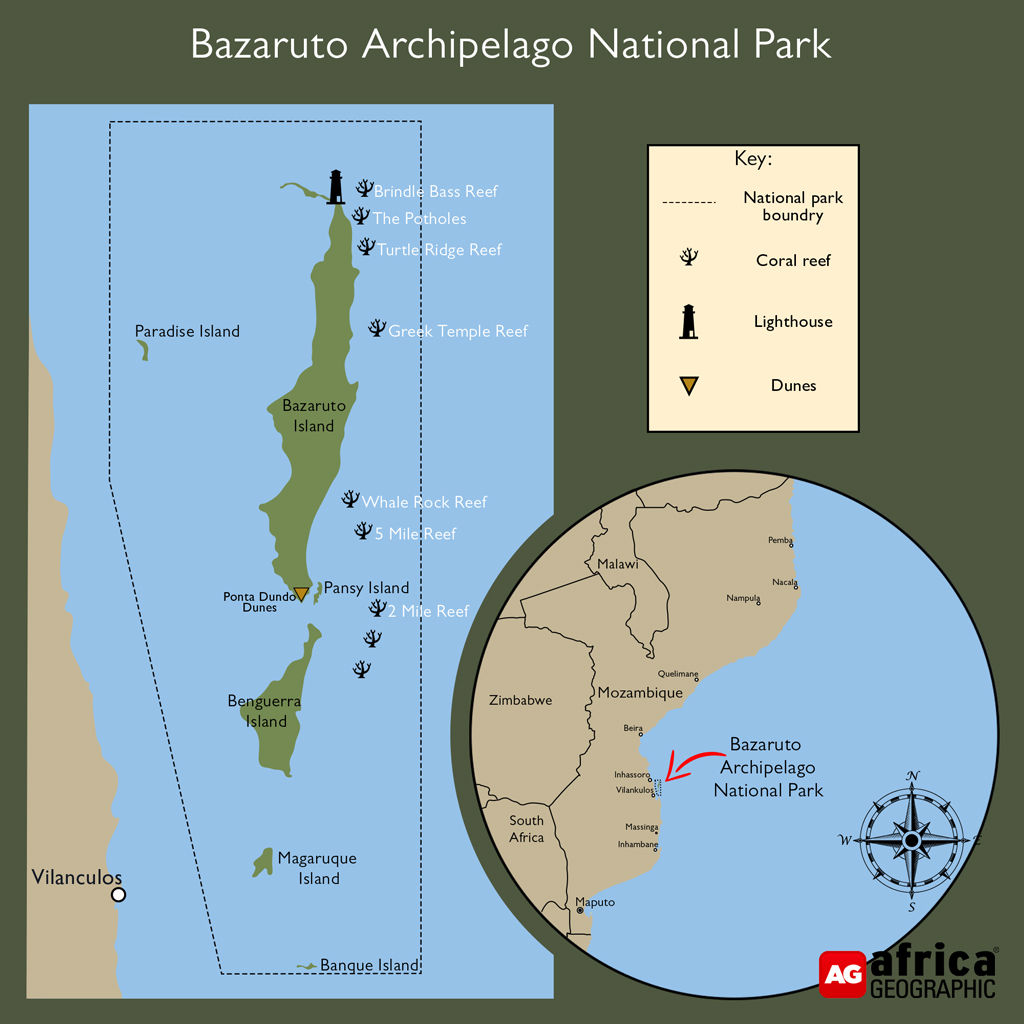
We’re hosted by old friend Veronica Bouwer, funding and special projects manager for the Bazaruto Archipelago National Park. Many years ago, she’d shared the thrills and spills of one of our expeditions in inflatable boats up the Rio Rovuma, that fascinating river that separates southern Tanzania from northern Mozambique. Now, some 20 years later, we’re in a boat again. Still, this time, it’s a state-of-the-art, shark-grey coloured 24 Novacat – African Parks’ patrol boat with two big 4-stroke outboard engines – destination Paradise Island, now known as Ilha de Santa Carolina.
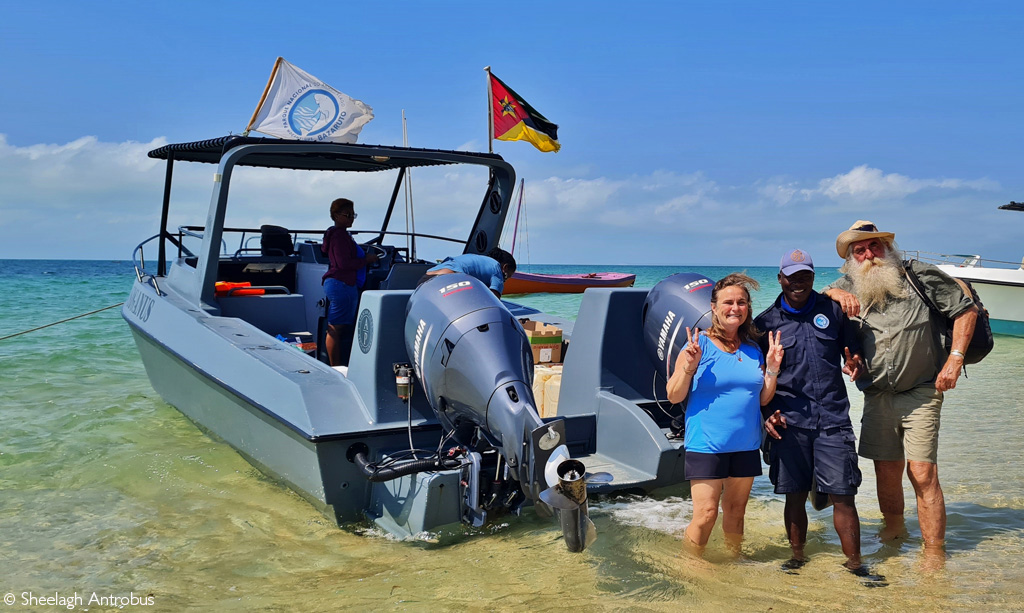
Spanning 1,430km² of the sea and five islands, the Bazaruto Archipelago is a thriving haven and one of the most critical marine sanctuaries in the Indian Ocean, protecting a host of marine species, including dolphins sharks, whales, manta rays, turtles and the largest viable dugong populations on the East African coast. Heading towards the sparkling white sand island beach, it’s as if we’re being escorted by a pod of dolphins gambolling beside the boat. Then, visible in the clear aquamarine water, several green turtle hatchlings rise to the surface – one of five turtle species that reside here. Bazaruto is the only known place in the western Indian Ocean where all five species nest every year.
Paradise Island is the only deserted island in the Archipelago, but that wasn’t always the case. We explore the fading pink and green ruins of the once-opulent Santa Carolina Hotel, which was renowned for hedonistic parties of the rich and famous in the 50s, 60s, and 70s. It’s rumoured that Elton John was a regular visitor, playing the grand piano in the ballroom with its endless turquoise sea views, and Bob Dylan penned his hit song ‘Mozambique’ here.
 DID YOU KNOW that African Parks offers safari camps (lodges and campsites) where 100% of tourism revenue goes to conservation and local communities? Find out more and book your African Parks safari.
DID YOU KNOW that African Parks offers safari camps (lodges and campsites) where 100% of tourism revenue goes to conservation and local communities? Find out more and book your African Parks safari.
Back in the patrol boat and heading for Bazaruto Island, the skipper squints into the sun and shouts, “Dugong!” He eases the boat slowly towards the ripples on the surface, and we lean over the side, eagerly searching for a glimpse. However, the dugong submerges and is quickly lost in sight. Still, its incredible marine conservation story is not lost on us.
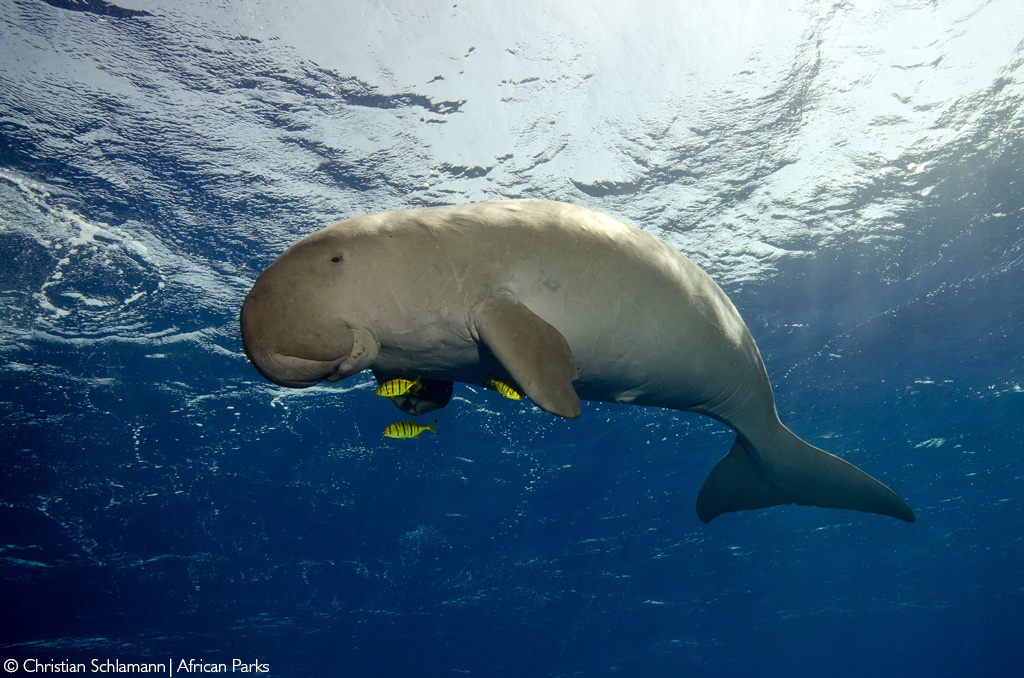
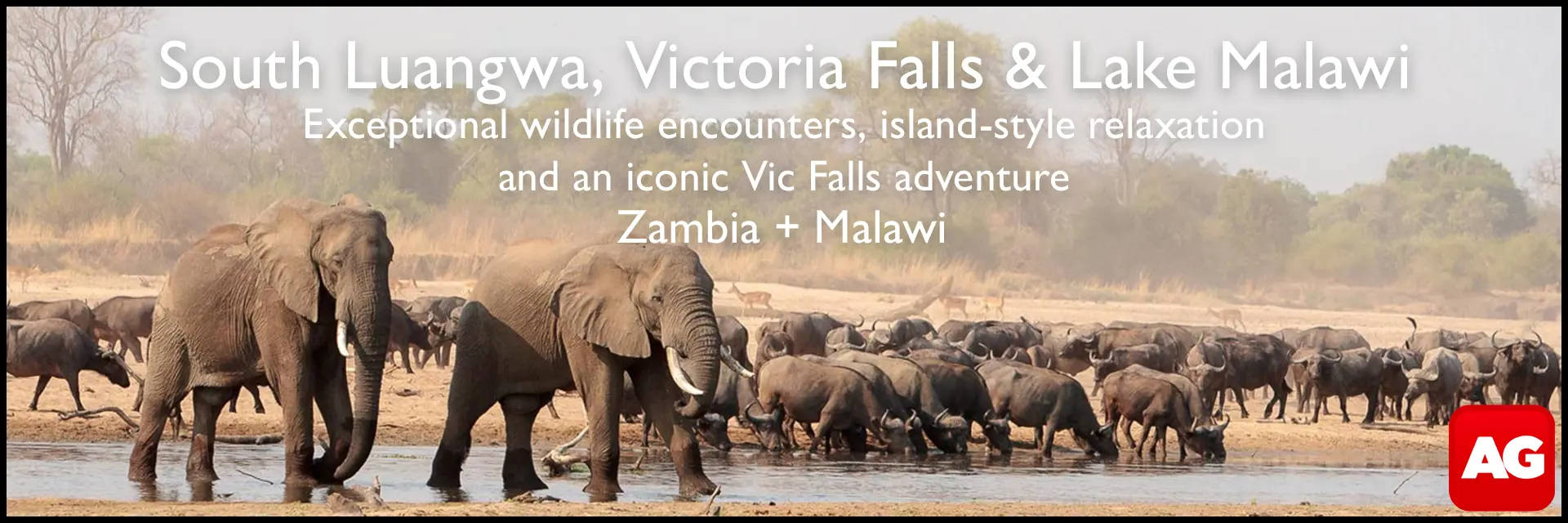
In 2022, the dugong was relisted as ‘Critically Endangered’ on the IUCN Red List, giving it the highest level of protection. In the past five years, the African Parks team on the islands has worked tirelessly to provide jobs and livelihoods for the Archipelago’s inhabitants and nurture a growing understanding of the benefits of protecting their unique marine biodiversity. We’re told that dugong deaths caused by fishing nets have almost completely stopped, illegal activities have substantially declined, and an aerial count this year showed an increase in the dugong population with many new calves spotted—another great story of hope for conservation on this Afrika Odyssey journey.
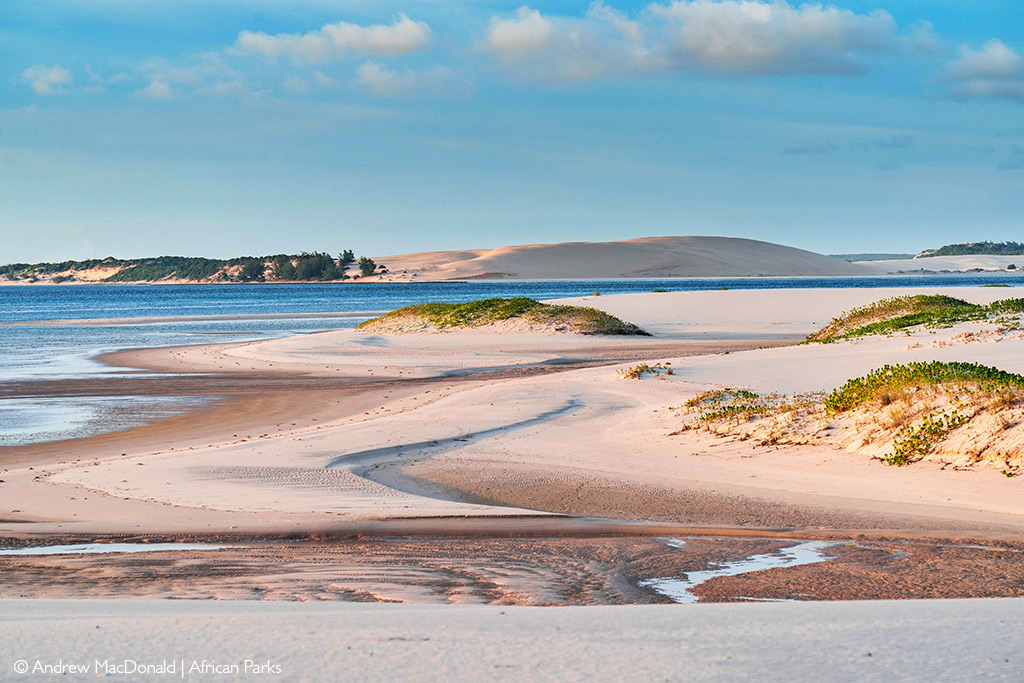
We mention to Veronica and her team how clean the beaches are; there’s not a scrap of litter, no old plastic bottles or washed-up rubbish – almost unheard of these days – and it adds significantly to the beauty of Bazaruto. Soon, we get to know why; as the patrol boat weighs anchor in knee-deep water and we wade ashore, a singing, dancing group of women colourfully dressed in bright blue and white kangas come down the beach to greet us. It’s the Basisa Bazaruto community group that employs 50 women, who last year removed over 167 tonnes of waste from the Archipelago and sent it by dhow to the mainland for recycling. What delightful characters!
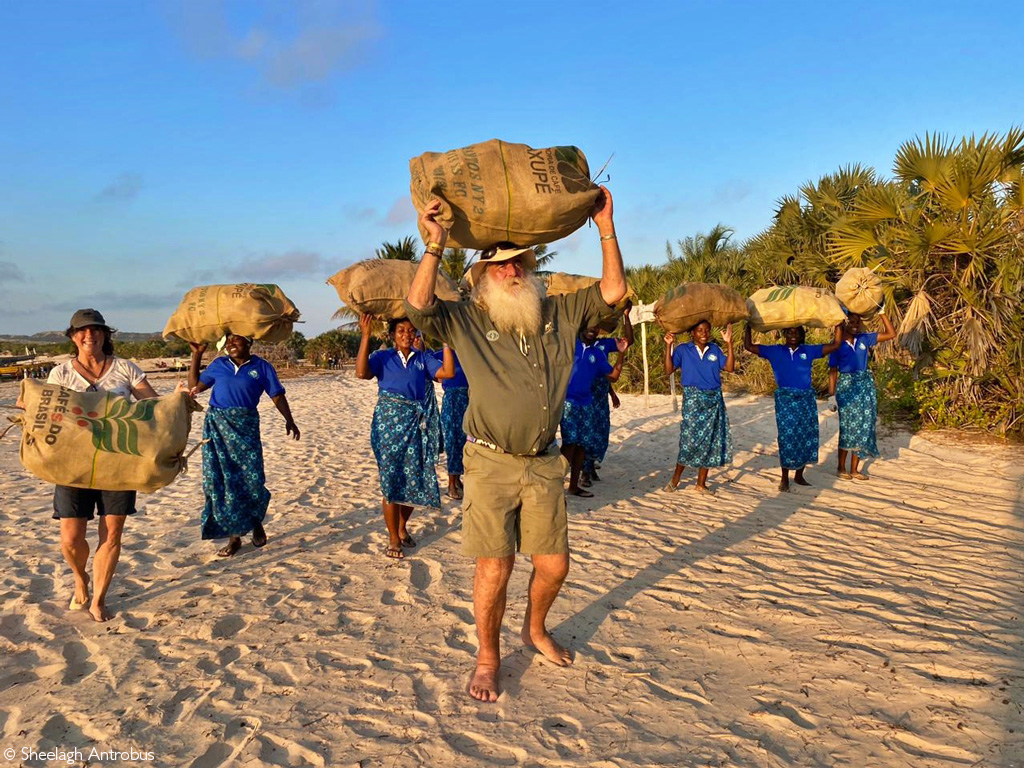
We dance barefoot in the sand, help carry the hessian sacks, and sort through the day’s collected waste. It’s the best clean-up project we’ve ever encountered and another excellent example of how African Parks and its partners realise the importance of involving communities—and have a great deal of fun while they’re doing it.
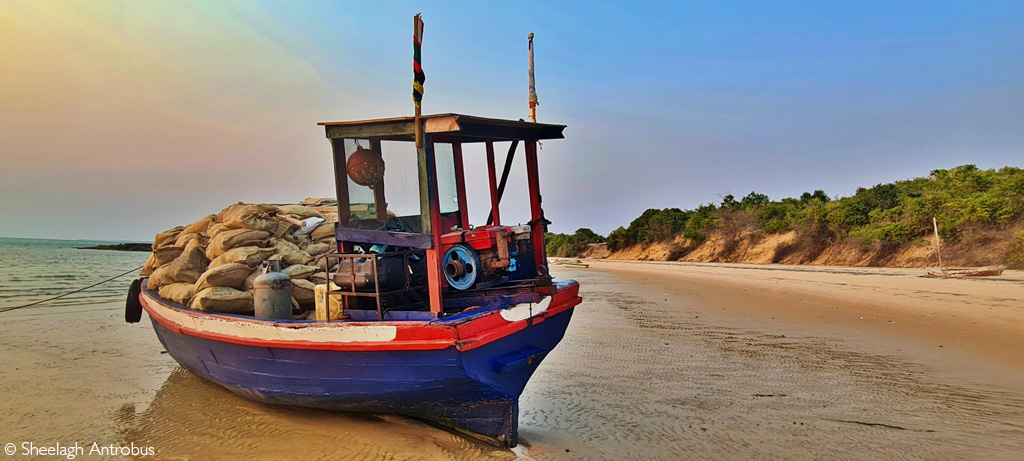
We ask Veronica where she’d like to add a splash of symbolic Bazaruto Archipelago water to the expedition’s calabash, expecting her to say from one of the beaches. But she’s a free spirit and opts for an inland, freshwater island lake. “It’s beautiful in the interior,” she says, pointing to a map. “But – you won’t believe this – we’ll have to be careful of the crocs! And we’ll have to use the island’s tractor and trailer to get there.”
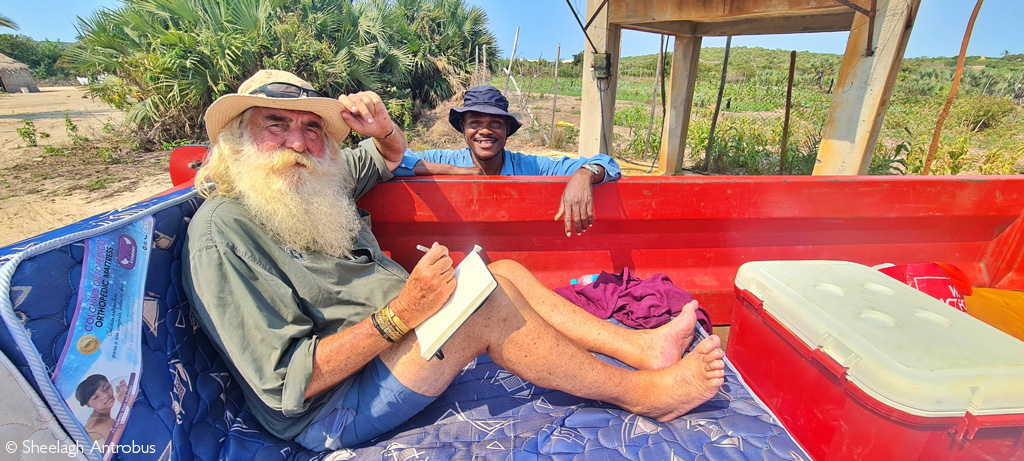
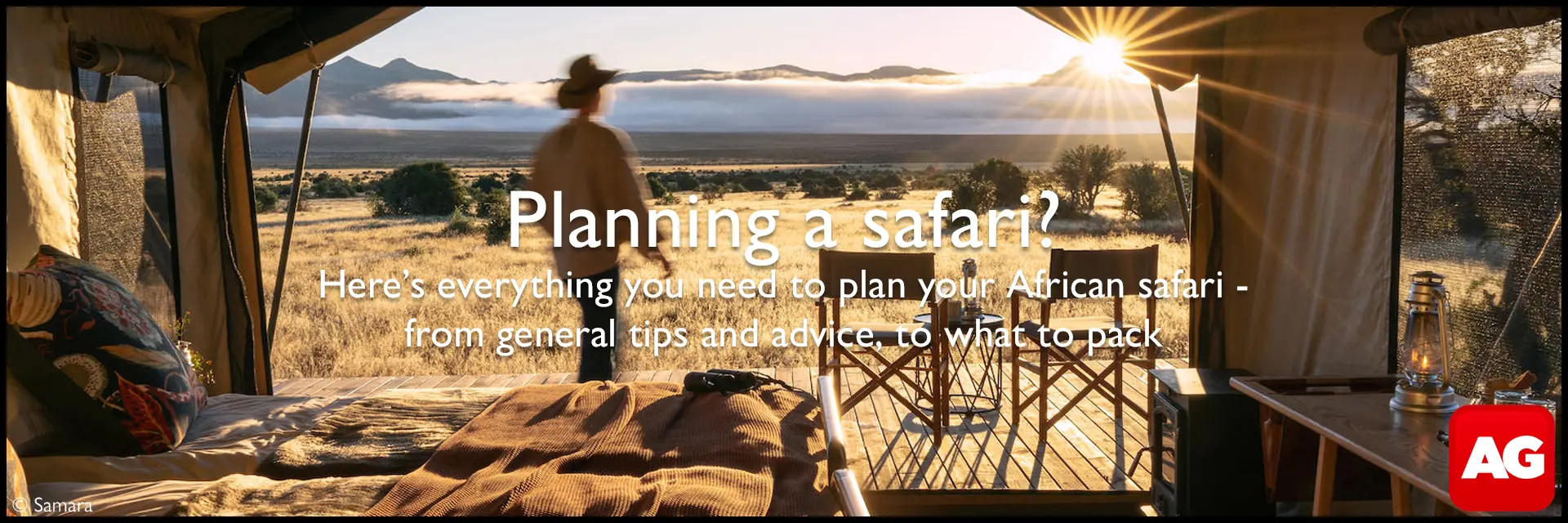
It’s a beautiful day, and we’re reminded of Bob Dylan’s words: ‘I’d like to spend some time in Mozambique, the sunny sky is aqua-blue….’ as we pile our bags and tailgate lunch boxes into the trailer. It has a solid suspension, so we bounce like rubber balls, passing island villages and stopping at vegetable gardens that Veronica and her community team helped establish. Lake Lengue is beautifully calm, with hardly a ripple in the water. We keep a careful watch as Veronica, Marcella and Niema dip the much-travelled calabash – the 10th and last addition of water for this southern Africa chapter. Someone shouts, “CROC!” and the three ladies race out of the lake as if shot from a cannon; laughter all around – we celebrate with an Eixx (2M beer).
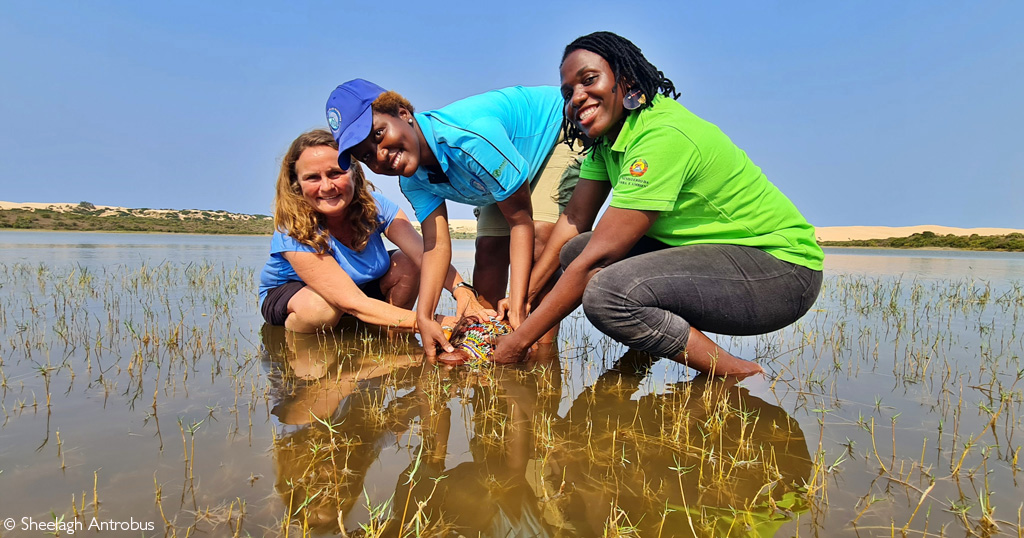
Many memories are created from our fascinating time on the Bazaruto Archipelago, especially at Sitone basecamp and again at the Chizungune ranger post, where the rangers—full of humour and camaraderie and totally committed to protecting this marine park—enthusiastically gathered to add their messages to the Scroll of Peace and Goodwill for Conservation that we’re carrying across the continent.
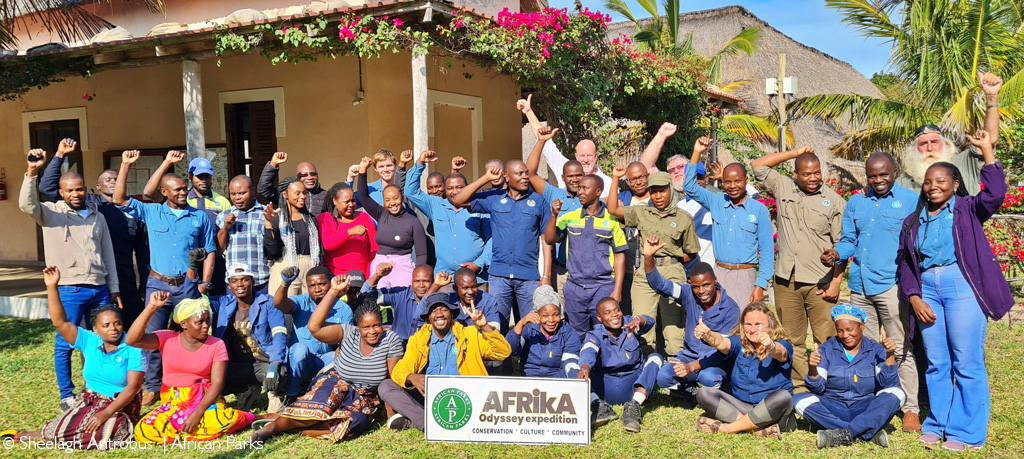
The last time messages written in Portuguese were added to the Scroll was over 100 days ago at Parque Nationale du Iona on the Atlantic coast of southwest Angola – the very first of the African Parks-managed wildlife areas on this journey. Now, here on the Indian Ocean coast, after a 23,000km west-to-east, cross-continental journey to experience first-hand the inspiring revival of 10 national parks with so many uplifting community and cultural encounters, we’ve completed the southern Africa chapter of this Afrika Odyssey expedition.
Friends, at a time when there are so many stories of doom and gloom for conservation in the headlines, how wonderful it is for us to be part of a greater story of hope for Africa’s wild spaces and the communities that depend on them.
It’s now time for Chapter Two of this wildlife-themed odyssey. We replenish the depleted expedition grub boxes, breathe an immense sigh of relief when crucial visas arrive just in the nick of time, and repack the two trusty expedition Defender 130s to the roof racks with more conservation and humanitarian supplies. The Scroll (now heavy with hundreds of heartwarming messages) and the most travelled African calabash in the world, which collects symbolic water from each park we visit, are given pride of place.
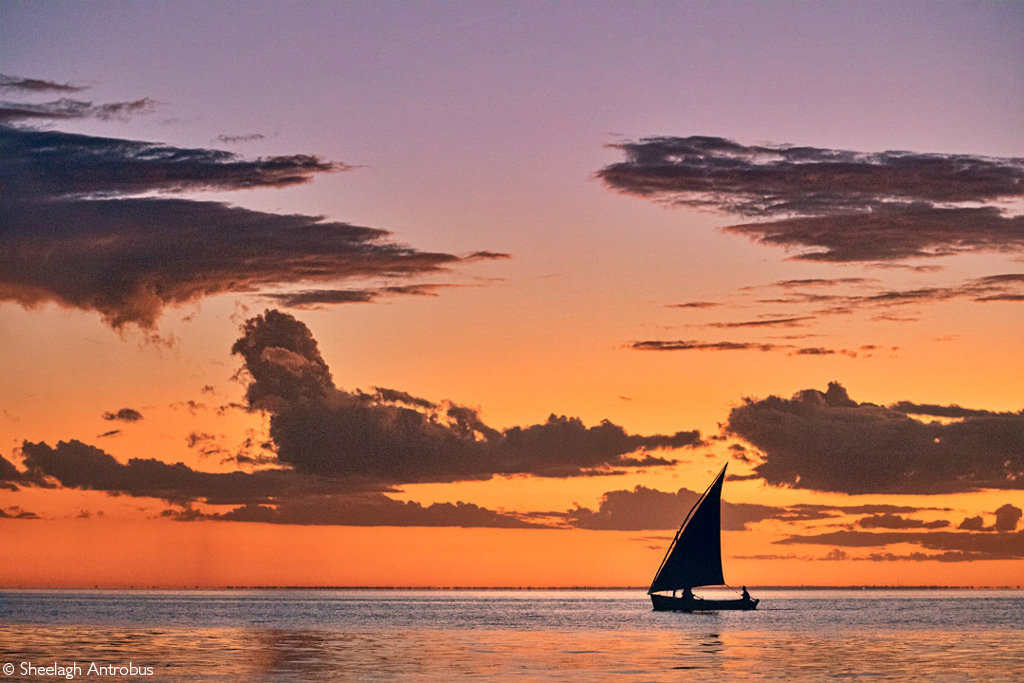
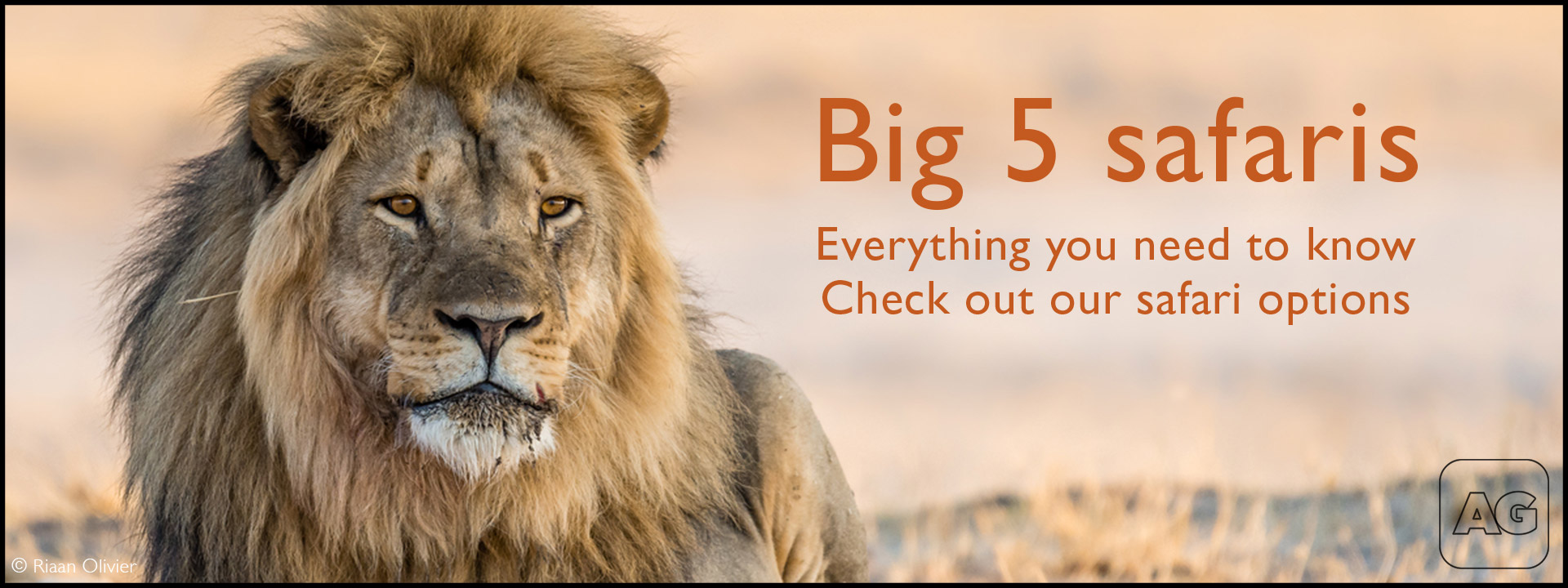
Heading north, our next African Park destination is Akagera National Park, the largest protected wetland and the last remaining refuge for savannah species in Rwanda. This second chapter also includes a challenging journey into the remote northeast corner of the DRC and then South Sudan. It promises to be even more of an adventure with captivating conservation and community stories waiting to be revealed—we will keep you posted.
To comment on this story: Login (or sign up) to our app here - it's a troll-free safe place 🙂.![]()




